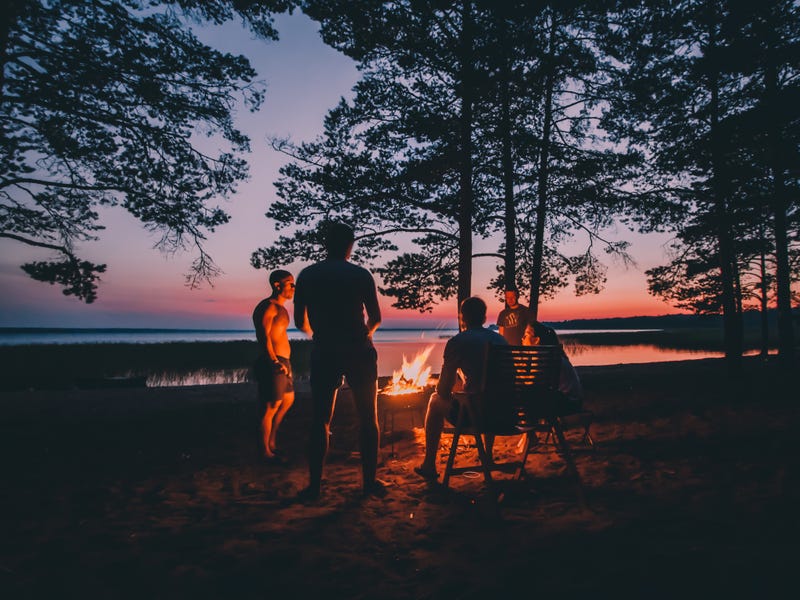
(WWJ) – Officials with the Department of Natural Resources are asking Michiganders to be extra careful with bonfires this Memorial Day weekend as we wrap up what has been a historically dry May.
So far this May, Detroit Metro Airport has recorded just .92 inches of rain, according to AccuWeather meteorologist Jon Feerick, who says that number is “obviously well below average” and close to the May record.
“The record lowest amount of rainfall for any May, at least at Metro Airport, was May 1988 of .78 inches. We’ve already received more than that. If we don’t get any more rain this month, which looks pretty likely, it would go down as the second-driest May on record,” Feerick said.
With many Michiganders and tourists enjoying the holiday weekend across the state, the DNR is issuing a warning due to the dry conditions.
Aside from being a hazard, Paul Rogers with the DNR says having an unsafe fire could land you in trouble.
“You could be ticketed for allowing the fire to escape, you could be ticketed for burning without a permit, so all of those come into play,” Rogers said. “Again, it’s the safety of everybody in Michigan. If you enjoy a campfire, that’s great. Enjoy it this weekend.”
Many across the state will be heading to cottages and spending time outdoors this weekend, but Rogers says it’s important to know the DNR is not allowing any debris burning.
“There’s not a burn ban, but we are not issuing the burn permits. The debris burning leaves and sticks and branches that people are going to their cottages or campsites for the weekend and that’s what they’re burning,” Rogers said.
“Campfires are still allowable, unless your local authority does not allow them. That can still be done, but they need to be kept smaller and kept inside of a metal ring or ring of stones,” he said.
The best time to have a bonfire is after 6 p.m. when the wind dies down, according to Rogers, who also says it's crucial to make sure your fire is completely out before going to bed.
“Make sure you have something out ahead of time that you can put the fire out with before you light it,” Rogers said. “So, your garden hose, a bucket of water, a rake, something along those lines.”


